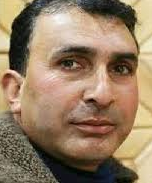“No, it is my ill fate otherwise my smoking grandfather lived for 95 odd years; okay, he was “, a relative of mine lectured when me and my friend enquired about his worsening health. Around ten more persons were in the room. Nobody saw eye to eye with the friend’s contention: ignoring his health time and again has eventually downed my relative. Even the doctor’s informed advice was disregarded.
Thousands of people like my relative work vigorously, neglecting their health. Accepted that working is imperative but it must not blind us to the undeniable reality — health is wealth. Taking health for granted is an accident waiting to happen.
It is our common experience that hordes of people are hell-bent on seeing a faith healer, not a doctor, in quest for a ‘ faster treatment’ of a disease / health issue. Mainly for mental and heart related issues; another easiest route taken is trusting quacks till the condition, in most cases, exacerbates.
Living / working with sound body and mind more often than not is underestimated — more so when you are engrossed in your work. Because striving to stay healthy is prudence, working at the expense of your health is a recepie for poor performance and hardships for your family.
This columnist well knows a family whose 49 year old person always worked like a horse. But he either was unwilling or unable to take care of his health untill a killer disease invaded him. This invasion left the man and his family in penury and trauma. Now running the household has become an uphill task, leaving the family in debt upto its neck. You may counter argue that anybody at anytime can fall ill. I do not disagree — far from it.
But the man in question — nine times out of ten— defiantly jeopardized his health and I am a witness that he rubbished a doctor’s advice and health tips from the well wishers. The end result: his health weakened alarmingly, leaving him bedridden spanning a decade before he breathed his last.
Notably, the United Nations has declared April 28 as the World Day for Safety and Health at Work. According to the UN statement , throughout the COVID-19 pandemic, we have seen that having a strong Occupational Safety and Health (OSH) system, which includes meaningful participation of governments, employers, workers, public health actors and all relevant parties at the national and enterprise level, has been crucial in protecting working environment and ensuring the safety and health of workers .
It adds that at the workplace level, a strong OSH culture is one, in which the right to a safe and healthy working environment is valued and promoted by both management and workers. A positive OSH culture is built on inclusion, through the meaningful involvement of all parties in the ongoing improvement of safety and health at work. In a workplace with a strong OSH culture, workers feel comfortable raising concerns about possible OSH risks or hazards in the workplace and management is proactive in collaborating with workers to find appropriate, effective and sustainable solutions.
This requires open communication and dialogue built on trust and mutual respect. As we continue to live through a global health crisis and face ongoing OSH risks in the world of work, we must continue to move toward building a strong safety and health culture at all levels.
In 2003, the International Labour Organization (ILO), began to celebrate the World Day to put focus on the prevention of accidents and diseases at work. This occasion is an inseparable part of the global strategy on occupational safety and health of the ILO as documented in the conclusions of the International Labour conference in June 2003. The World Day for Safety and Health at Work is an essential pathway to shed light on making work safe and healthy.
April 28 is also the International Commemoration Day for Dead and Injured Workers; this has been organized across the globe by the trade union movements since 1996. There is no escaping the fact that the health of workers — whether officials or non-officials — needs to be given primary importance; all else comes second.
A healthy worker can work efficiently and effectively provided he/she has sound ethics; poor health, on the contrary, is a curse. It delays work completion and may prevent work. Thus, it can slow or stop economic development of society. An example. If a doctor has not healthy working conditions to work in, how can he/she do duty happily for the welfare of patients. A clean and germ-free room or ward is a key requirement for the honest doctor to function effectively.
Likewise, a clean, well ventilated and noise- proof classroom (along with the required learning aids) only can prepare a handsome and healthy platform for a well – intentioned teacher to teach effectively to the students’ advantage. No substitute to it.
Even a person working in the agricultural field needs safe and pollution-free working conditions in order to stay healthy and work better. Poor health — fatigue, anemia, diseased teeth, aching muscles and so on — is likely to reduce the working capacity of the affected person. The entire family could suffer economically and socially.
A healthy person can shoulder family and social responsibilities ably and usefully. The tragic experience of the middle aged man, the UN stress on safety and health, and the financial issues of a family where a member suffers from a disease — all accentuate that staying healthy is a blessing for a family and society at large.
Unsafe and unhygienic conditions for a doctor or teacher or a farmer can be done away with. Educational establishments and rational community members can step in for a key role in promoting healthy working conditions and manners.
(Author is RK Columnist and teacher by profession Feedback: [email protected])








